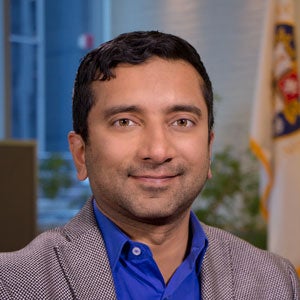
Articles
Access to Behavioral Health, Behavioral Health Care Delivery
The Rising Rate of Suicide
By Jay Bhatt
Suicides have increased by more than 25 percent during the past decade, and it is now the tenth-leading cause of death in the U.S., costing more than $44 billion annually.
Innovation/New Models of Care, Access & Health Coverage, Disruptive Behavior
Are You a Health Care Innovator?
By Jay Bhatt
The AHA is inviting members to become a change agent or health care disruptor—to solve real, complex health care problems and answer the strong demand for innovation in the field now.
Social Determinants of Health, Access to Care in Vulnerable Communities, Community Health Workers
Your Zip Code, Your Health
By Jay Bhatt
Your zip code dictates your health; your hospital wants to change that.
Physician Leaders, Physician Alliance: Lead Well, AHA Physician Alliance
AHA’s Jay Bhatt: Preparing Physicians for Change Management, Self-leadership
By Jay Bhatt
Physicians spend many years learning clinical practice, yet we don’t prepare them for change management or self-leadership. The AHA Physician Alliance has partnered with Novant Health and OneTeam Leadership on a pilot program to help fill this gap in training.
Infection Prevention and Control, Quality & Patient Safety
Preventing the Spread of Multidrug-Resistant Organisms (MDROs)
By Jay Bhatt
This week, the Centers for Disease Control and Prevention (CDC) released a Vital Signs report identifying the threats associated with antibiotic resistance (AR) and recommending “early and aggressive action” to prevent resistant pathogens from spreading in health care facilities.
Social Determinants of Health, Access to Care in Vulnerable Communities, Leadership
AHA CMO Jay Bhatt: Surgeon General, Other Leaders Highlight Importance of Community Partnerships at ACHI Conference
By Jay Bhatt
At the AHA’s Association for Community Health Improvement (ACHI) National Conference last week, U.S. Surgeon General Jerome Adams, M.D., spoke about how strengthening relationships between health care organizations and communities is the key to improving health. Aligned with his motto, “Better health through better partnerships,” Adams’ message focused on the need to be willing to go to our partners' table, speak their language, listen to their concerns, understand needs, identify opportunities and take action together.
Governance Effectiveness
A new model for equity of care
By Jay Bhatt
Increasing diversity in health care leadership and eliminating care disparities are critical to ensuring high-quality care for all. The renamed Institute for Diversity and Health Equity has created a new model for the American Hospital Association’s continued work on these issues and is engaging broader participation.
Leadership, Physician Issues, Clinician Well-being, AHA Physician Alliance, Physician Alliance: Be Well
AHA’s Jay Bhatt: Six Things You Can Do Now to End Burnout
By Jay Bhatt
Below are six actions everyone can take to address burnout in their organization while helping themselves and colleagues on the road to resilience.
Access to Care in Vulnerable Communities
A New Study on Redesigning Care for Vulnerable Patient Populations
By Jay Bhatt
Vulnerable patient populations, including the poor, uninsured and those with multiple chronic conditions, have complex health needs exacerbated by social determinants such as food insecurity, unstable housing and lack of transportation.
